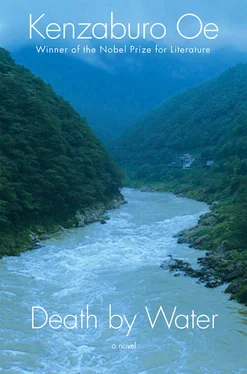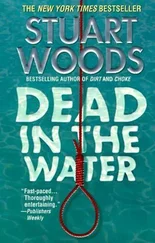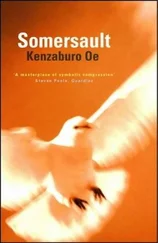At that point Ricchan took over and began corresponding directly with Sakura. They exchanged a flurry of emails, and the situation evolved quite rapidly. Sakura told Ricchan that at the present time, she held the exhibition rights for the film. She would be happy to dispatch a DVD of it right away, but she suspected the village probably didn’t have a movie theater suitable for showing a feature film. The movie had never been shown publicly in Japan, and since so many local women had participated in the filming, as extras, Sakura said she hoped as many of them as possible would have a chance to see the finished product. After giving the matter some thought, Sakura came up with the idea of putting on a free public screening of the film as an adjunct of the stage performance. The showing would take place up at the Saya, where some of the film had been shot. Of course, in order to screen a movie outdoors in the middle of a meadow, we would need some special equipment, including a large portable screen. Sakura said she had all the necessary gear at her house, and since she suspected that Komori had probably never gotten around to paying Mr. Choko a penny for writing the screenplay for the film (she joked), she would be happy to send those items to us by air freight, at her own expense.
That was how Unaiko and Ricchan, with some help from their friends, managed to expand the festivities beyond the theater in the round. Of course, Asa pitched in along the way, as usual, while also continuing to act as unofficial den mother and cheerleader in chief for her talented young protégées.
Chapter 15. Death by Rain
1
It was the final dress rehearsal, the afternoon before the play opened. Masao Anai and I were sitting together toward the back of the theater, far from all the Very Important People who had crowded into the front and center seats.
Toward the rear of the stage there was a newly erected, complex-looking structure that I perceived at first as a tall, broad bridge with multiple levels. A woman, dressed in a dark blue linen dress and matching hat, was navigating one of those elevated catwalks, nimbly traversing from stage left to right and back again. Her head was hanging low, so I couldn’t see her face, but I assumed it was Unaiko, as in previous rehearsals. The woman vanished behind the drop curtain on the left side of the stage and then, a few moments later, reappeared from the other side of the stage on another level, walking with the same confident gait. As I watched her ascending ever higher, I realized that the complex structure was one continuous ramp — not unlike the spiral staircases you sometimes see in upscale houses, only wider and more sturdily built.
By and by Masao told me that Unaiko had been called away for an emergency meeting, and the young woman in blue was a troupe member who had been pressed into service as a stand-in. (I still thought she looked a lot like Unaiko, especially from behind.) As the substitute was approaching the darkness at the edge of the uppermost level, the sound of a weeping girl, which had been faintly audible before, was suddenly amplified. The woman had been swallowed up in the darkness after taking three turns on the ramp, but the voice of the crying child kept getting louder, until it echoed through the hall.
Then a little girl dressed in a flimsy floral dress and slip-on canvas shoes stepped onto the ramp, continuing to wail at the top of her lungs, and began to wend her way toward the ceiling. Up she went, one slow, arduous step at a time, bawling all the way, until she reached the top, whereupon she seemed to fall away into the darkness. (Meanwhile, the lighting had been altered to make the lower part of the staircase appear hazy and indistinct.)
As the sound of the sobbing child died away, a single shaft of light illuminated the stage. Standing there was the blue-clad woman we’d seen earlier, still looking as forlorn as she had when she was climbing upward with downcast eyes. This time, however, she addressed the audience in a clear, strong voice that filled the entire theater.
“I think there are a lot of people who have had some sort of chance encounter with a small female child who wanders alone along city boulevards or in the subterranean labyrinths beneath train stations, crying at the top of her lungs, but they have no idea who the child might be or to whom she belongs. The young woman is always a few paces ahead of the child and evidently doesn’t want to allow the little girl to catch up with her, because she always seems to be walking very fast. This is an urban phenomenon that actually exists today.”
Typically for one of Unaiko’s productions, there was more exposition than in a conventional play, but the audience seemed to be listening raptly.
“A hundred and forty-some years ago, in this area, a brave group of children placed themselves between the government soldiers and the front lines, forming a sort of protective shield for the farm women gathered to fight in the uprising led by Meisuke’s mother,” the woman in blue went on. “Wailing all the while, the children hunkered down on the ground and prevented the soldiers from penetrating into the heart of the battalion. As a result, the women were able to fight their way to a quick victory. The exploits of those female warriors are celebrated around here to this day. In fact, Meisuke’s mother’s call to battle became so famous that it has been preserved in the form of a chant, which folks here sing every year during the Bon Odori season. We basically used Mr. Choko’s version of the chant, which he originally wrote for a screenplay, but we took the liberty of adding a line or two of our own:
Men commit rape — that’s nothing new / But countries can be rapists, too. / Women warriors, here we go / Off to vanquish every foe!
“So, this is how our performance begins. We’re fully prepared to deal with any difficulties that might arise as a result of the ideological opposition to this play and (assuming we can overcome those challenges) for our finale we’re planning to call the weeping child and her despondent mother back to the stage. At that time, however, there will be several mothers and their children, rather than just one of each. And all the little girls, instead of weeping buckets of tears, will be smiling prettily, and all the mothers will be wearing expressions bright with hope.
“What we would like to demonstrate with this play is that the same oppression that forced the local women to take up arms over a hundred years ago continues today, and is personified by the sad mothers and crying children most of us seem to have glimpsed on the streets of our cities. But while we all need to acknowledge that there are still a great many battles to be fought by women, at the same time we would like to convey a message of hopefulness and possibility, so the women warriors who went before us won’t have suffered and died in vain. That’s what we’re hoping to accomplish here tonight by showing you this play.”
As the actress’s introductory monologue reached its end, the stage became dark and the sound of voices chanting the war cry echoed from far away.
Women warriors, let us go
Off to face our latest foe.
Into battle we will soar
Strong and brave forevermore.
All together, here we go
We shall vanquish every foe!
Then the women — whose voices were far more impressive than those of the men in the chorus — let out a whoop of victory and that cheer swelled and intensified, growing louder and louder, to signify the successful conclusion of the uprising.
Ricchan was the musical director for the play, of course, and she had used Sakura’s DVD of Meisuke’s Mother Marches Off to War as a resource for the musical components of the play. Ricchan wasn’t present at this rehearsal, either; the last time I’d seen her was when she headed up to the Saya early that morning, along with Tamakichi and some of his friends (many of whom had also been involved in the filming of the movie), to pitch a giant tent for the public screening of Sakura’s film. The showing took place a couple of hours before the rehearsal, and I had heard reports that because of the way the wind was blowing the voices of the actors on the screen were audible all the way down to the houses along the river. I couldn’t help thinking that because of the auspicious breeze, quite a few local residents who would attend the following evening’s live performance might experience a frisson of recognition when they heard the battle-cry chant again. Tickets for the performance had already sold out, and the local newspapers and TV stations had also given a great deal of publicity to the showing of the original film at the Saya. As a result, the event had ended up being standing room only.
Читать дальше










